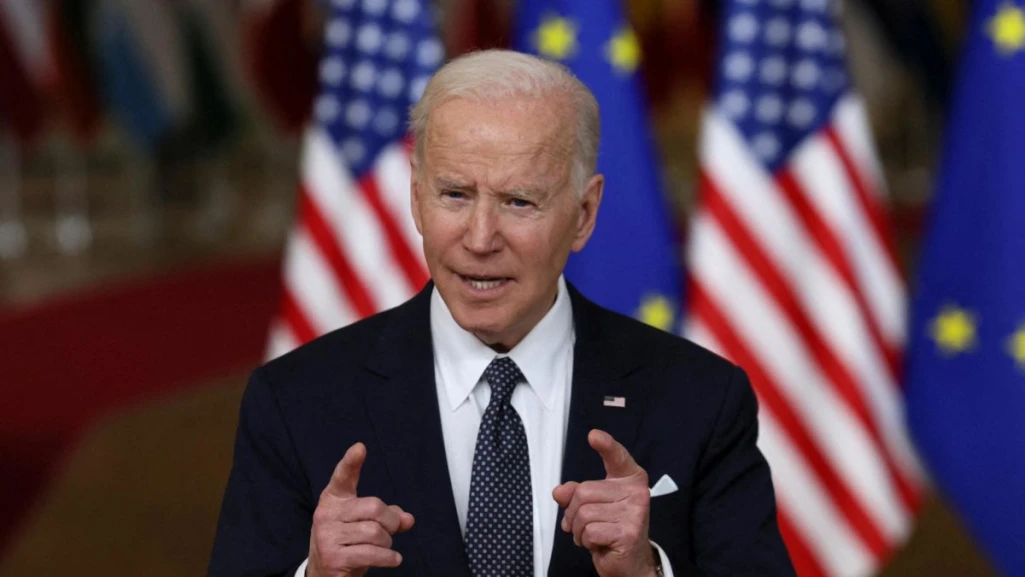
Former US President Joe Biden, 82, has been diagnosed with
prostate cancer that has spread to his bones, a statement from his office said
on Sunday.
Biden, who left office in January, was diagnosed on Friday
after he saw a doctor last week for urinary symptoms.
The cancer is a more aggressive form of the disease,
characterised by a Gleason score of 9 out of 10. This means his illness is
classified as "high-grade" and the cancer cells could spread quickly,
according to Cancer Research UK.
Biden and his family are said to be reviewing treatment
options. His office added that the cancer was hormone-sensitive, meaning it
could likely be managed.
In Sunday's statement, Biden's office said: "Last week,
President Joe Biden was seen for a new finding of a prostate nodule after
experiencing increasing urinary symptoms.
"On Friday, he was diagnosed with prostate cancer,
characterised by a Gleason score of 9 (Grade Group 5) with metastasis to the
bone.
"While this represents a more aggressive form of the
disease, the cancer appears to be hormone-sensitive which allows for effective
management."
After news broke of his diagnosis, the former president
received support from both sides of the aisle.
President Donald Trump wrote on his social media platform
Truth Social that he and First Lady Melania Trump were "saddened to hear
about Joe Biden's recent medical diagnosis".
"We extend our warmest and best wishes to Jill and the
family," he said, referring to former First Lady Jill Biden. "We wish
Joe a fast and successful recovery."
- Analysis:
Cancer diagnosis is another formidable challenge
- What
we know about the prostate cancer diagnosis
Former Vice-President Kamala Harris, who served under Biden,
wrote on X that she and her husband Doug Emhoff are keeping the Biden family in
their prayers.
"Joe is a fighter – and I know he will face this
challenge with the same strength, resilience, and optimism that have always
defined his life and leadership," Harris said.
In a post on X, Barack Obama – who served as president from
2009 to 2017 with Joe Biden as his deputy – said that he and his wife Michelle
were "thinking of the entire Biden family".
"Nobody has done more to find breakthrough treatments
for cancer in all its forms than Joe, and I am certain he will fight this
challenge with his trademark resolve and grace. We pray for a fast and full
recovery," Obama said. In 2016, Obama tasked Biden with leading a
"cancer moonshot" government-wide research programme.
In the UK, Prime Minister Keir Starmer said: "I am very
sorry to hear President Biden has prostate cancer. All the very best to Joe,
his wife Jill and their family, and wishing the president swift and successful
treatment."
The news comes nearly a year after the former president was
forced to drop out of the 2024 US presidential election over concerns about his
health and age. He is the oldest person to have held the office in US history.
Biden, then the Democratic nominee vying for re-election,
faced mounting criticism of his poor performance in a June televised debate
against Republican nominee and current president Donald Trump. He was replaced
as the Democratic candidate by his vice-president, Kamala Harris.
Prostate cancer is the second most common cancer affecting
men, behind skin cancer, according to the Cleveland Clinic. The US Centres for
Disease Control and Prevention (CDC) says that 13 out of every 100 men will
develop prostate cancer at some point in their lives.
Age is the most common risk factor, the CDC says.
Dr William Dahut, the Chief Scientific Officer at the
American Cancer Society and a trained prostate cancer physician, told the BBC
that the cancer is more aggressive in nature, based on the publicly-available
information on Biden's diagnosis.
"In general, if cancer has spread to the bones, we
don't think it is considered a curable cancer," Dr Dahut said.
He noted, however, that most patients tend to respond well
to initial treatment, "and people can live many years with the
diagnosis".
Dr Dahut said that someone with the former president's
diagnosis will likely be offered hormonal therapies to mitigate symptoms and to
slow the growth of cancerous cells.
Biden had largely retreated from the public eye since
leaving the White House and he has made few public appearances.
The former president delivered a keynote speech in April at
a Chicago conference held by the Advocates, Counselors, and Representatives for
the Disabled, a US-based advocacy group for people with disabilities.
In May, he sat down for an interview with the BBC - his
first since leaving the White House - where he
admitted that the decision to step down from the 2024 race was
"difficult".
Biden has faced questions about the status of his health in
recent months.
In an appearance on The View programme that also took place
in May, Biden denied claims that he had been experiencing cognitive decline in
his final year at the White House. "There is nothing to sustain
that," he said.
For many years, the president had advocated for cancer
research.
In 2022, he and Mrs Biden relaunched the "cancer
moonshot" initiative with the goal of mobilising research efforts to
prevent more than four million cancer deaths by the year 2047.
Biden himself lost his eldest son, Beau, to brain cancer in 2015.